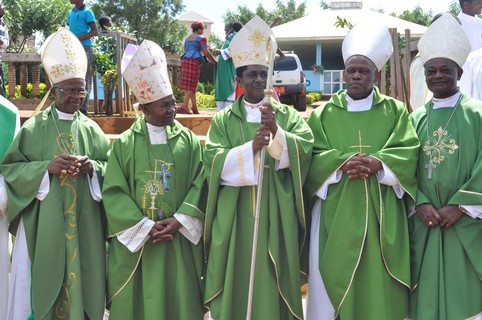Natural Occurrence in Batibo LGA Spurs Fear and Reflection as Cultural Neglect Becomes the New Normal
By Andre Momo
It has been several years since the passing of Professor Shadrach A. Ambanasom, the renowned scholar of African literature whose works explored the mystical connection between nature and the spiritual life of Momo County in the Northern Zone. Yet today, as heavy rains strike once more, his legacy feels more present than ever.
Earlier this week, a violent downpour battered the village of Nguzan in Batibo LGA, leaving destruction in its wake. The rainstorm, accompanied by fierce winds, tore the roof off the village palace, badly damaged the local market, and reportedly caused significant harm to the Presbyterian Church in the area. The event has stirred unease among villagers, raising deep spiritual and cultural questions.
For those familiar with Ambanasom’s acclaimed novel Son of the Native Soil, the parallels are striking. In the book, a similar tempest strikes Ajung, a village in Ngie LGA, on the night of tAchamba’s death — the story’s central character. Roofs are ripped away, trees are uprooted, and the community is left in chaos. The symbolism was clear then — and, to some, eerily relevant now.
The storm has ignited debate among locals. Some wonder if the destruction signals an impending event, good or ill. Others view it as a warning — a reminder of the consequences of neglecting tradition and ancestral customs. Traditional leaders in Nguzan are reportedly consulting spiritual signs and rituals, seeking guidance in interpreting the “writings on the wall.”
Meanwhile, followers of Prophet Henry Orock Bitam have pointed to the incident as further validation of his ongoing prophecies concerning Ambazonian independence. According to them, natural events like this are not mere coincidences but divine markers on the path toward liberation.
What remains certain is that this storm has shaken more than just buildings. It has rekindled a sense of spiritual inquiry — and perhaps a longing to reconnect with cultural roots long pushed aside in modern times. Whether this is an omen for all of Ambazonia or a message solely for Nguzan, only time will tell.



